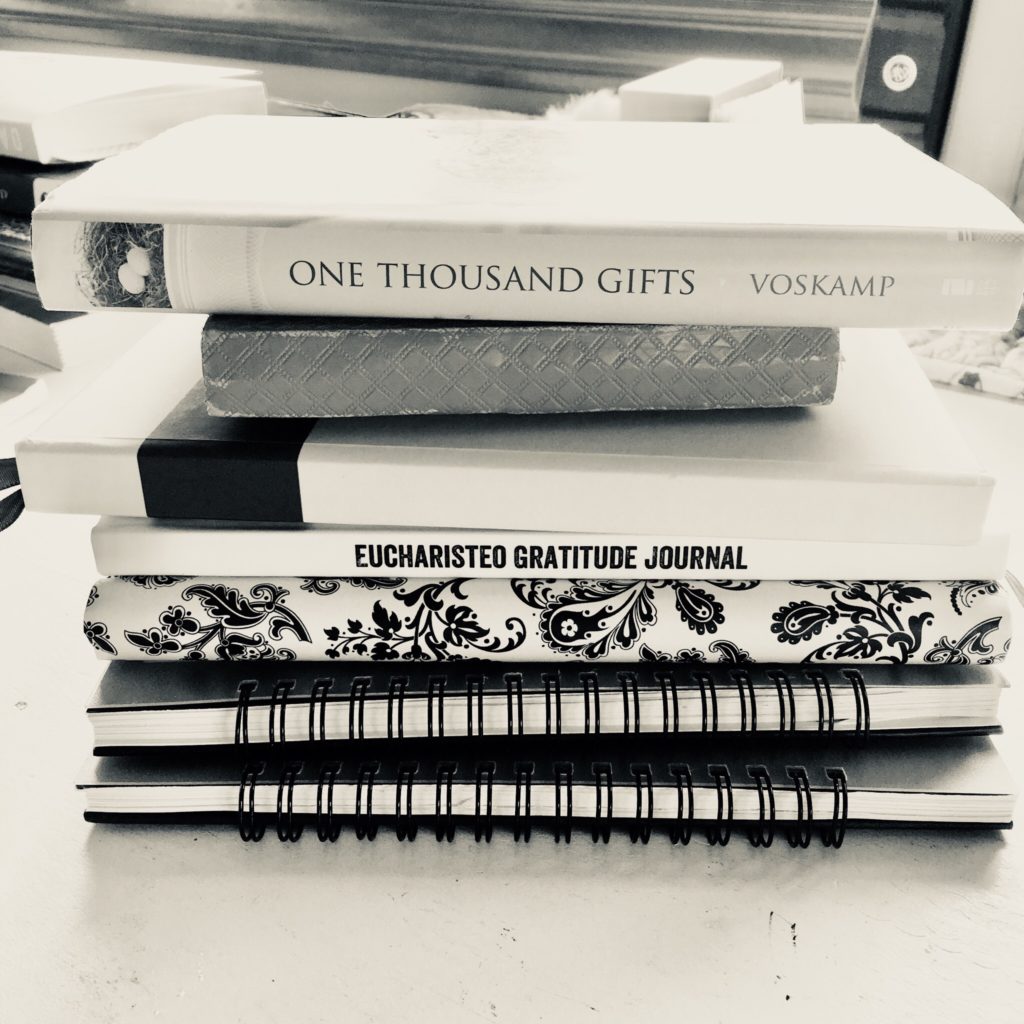Thanksgiving week is my holiday. What’s better than one whole day centered around a crazy big meal with friends and family? How about adding an extra day off for digestion and then the weekend for bonus happy. Thank you, dear ancestors in your funny hats and feathers, for pulling off America’s first potluck and calling it a tradition.
Your family no doubt has unique traditions and associations that mark this holiday. Our family has for years tried to incorporate some expression of gratitude from everyone gathered around our table.
Somewhere after second helpings but before dessert, we go around the table and name things we are thankful for.
This act of giving thanks blesses both speaker and listener. Even though someone is usually cranky and irritated by the end. It’s an exchange of gifts that money can’t buy.
The language of gratitude begs practice every day, not just on Thanksgiving.

Seven years ago I read Ann Voskamp’s One Thousand Gifts and it completely reimagined my concept of gratitude. I’ve read it several times and bought numerous copies to share. I’ve written about it in an attempt to nail down its truth in permanence in my heart.
If you aren’t familiar with this book, Ann presents the reader with a dare to make a list of one thousand gifts. She asks how your life might be different if you were to create a habit of observing the abundant gifts each day presents. Eucharisteo is the word to describe this practice. A blended marriage of grace and thanks and joy.
She writes that “to name is to the learn the language of Paradise“ and that “to name is to solve a mystery.”
Beautiful right? I took the dare seven years ago when I read these words and began a habit of paying attention to everyday gifts. The idea is so simple. Just number and name those gifts in an ongoing list. It takes only a moment or two each day.
#23. train echoes in the dark #816. farmer’s market bouquet #6286. Starbucks run with Trace
Six journals and 8,367 gifts later reveal a surprising spiritual practice that I pray never stops.
We base many of our techniques as SLPs on the introduction of new habits. So we understand how fresh neural pathways are formed in our brain by the repetition of these habits.
Keeping a running list of the big and little things we are grateful for will, over time, literally change the way our brains interpret our life. Think of the implications. Ann writes,
“Learning slowly to not be so reactionary while inserting verbal gratitude into stressful situations is almost like being healed of mental blindness.”
This one small habit can change your life. It has the power to transform the work you do, your relationships, and how you handle the challenges that come your way.
I scroll through the list that fills these books. Ordinary moments named become a testimony. And I’m humbled by how many gifts I’ve named over the years through my work as an SLP.
#3190. ziplock bag ice cream #5002. 4 IEPs completed #7988. belly laughs from four-year-olds
The naming of gifts becomes the gift that keeps on giving.
My challenge for you is to start a list this week or next. Lay out a fresh journal amidst the pie crust and breadcrumbs. Use this Thanksgiving season to dust off and refresh your language of gratitude. I dare you!
What are some of the first gifts that come to mind when you think of your job as an SLP?
